Alex Salmond has released his diary of the referendum campaign, The Dream Shall Never Die: 100 Days that Changed Scotland Forever.

We've given it a quick read – and here are the most extraordinary stories, claims, and revelations.
1. Lucozade gave Salmond special powers during the campaign.

Salmond revealed that his victory in the second TV debate with Alistair Darling was powered by Lucozade.
It apparently gives him a feeling of heightened self-confidence because it's what he used to drink before every performance as a theatrical young lad.
"When I was a boy singer I used to insist on a copious supply of it to provide instant energy and clear my larynx," he wrote. "I did the same thing for the debate, perhaps subconsciously understanding that this would help generate an inner self-confidence."
After making short work of Darling in the debate, he treated himself to another bottle of the glucose concoction: "When the debate was over I noticed there was one bottle of Lucozade left and I drank it in a single go."
2. Salmond hoped England would do well at the World Cup because it would boost the Yes campaign.
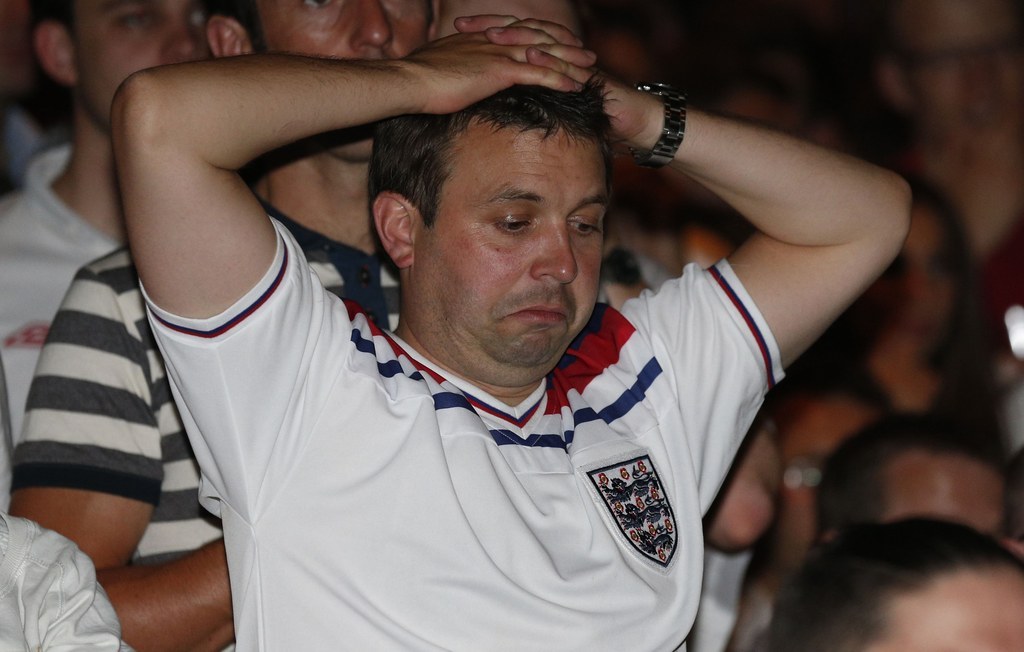
He was disappointed when he watched England slump to defeat against a "pretty average Italian side" in the team's first World Cup match, as he'd hoped that an extended English cup run would help the Yes campaign.
"Eight years ago my immediate predecessor Jack McConnell made a complete fool of himself by supporting England's opponents at the World Cup," wrote Salmond.
"This has never been my inclination, although I do subscribe to a theory that an extended England run during the tournament would be a big positive for the Yes campaign."
After seeing England's sorry showing against Italy, he bemoaned England's "dodgy defence and ageing midfield" and wrote: "As I suspected, Yes will have to look elsewhere for a campaign boost."
3. Salmond thought reports on cybernats were nothing but "contrived candy-floss".
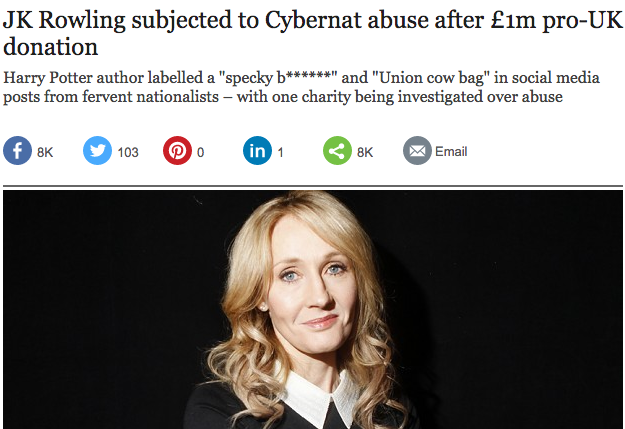
He said the media focus on "cybernats" was unjustified, and that pro-independence trolls had nothing to do with politics.
"In fact it is not 'nats', it is 'nuts'," he wrote. "The connection with politics is purely coincidental – internet trolls get their kicks from attacking anyone in the news about anything."
However, he did think the stories could damage the Yes side: "Most claims of the No campaign don't touch us: they are too exaggerated or just plain silly. This might."
4. Salmond said being a target for eggs was Jim Murphy's only contribution to the referendum campaign.
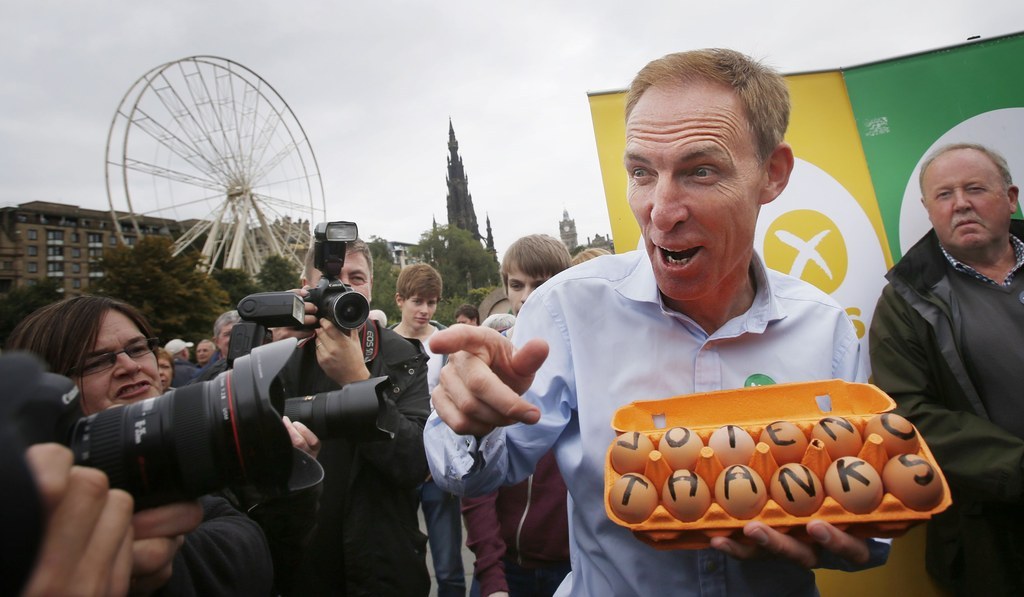
The Labour MP's only appearance in the diary comes on the day after an independence supporter threw an egg at him on the campaign trail in Kirkcaldy.
"In Mr Murphy's twilight world, his dry-cleaning bill has become the story of the campaign," wrote Salmond. "In the dungeons of the London media he is the hero of the streets."
Salmond added that he'd heard from "Labour party friends" that Murphy wasn't interested in the referendum but wanted to take over Johann Lamont's job as Scottish Labour leader, which has since come to pass.
"If [he gets the job], they are daft, she is worth ten of him."
5. Salmond thought David Cameron underestimated the importance of the MTV Awards to the referendum.

Salmond thought Cameron displayed a "huge misunderstanding of the Scottish psyche" in agreeing to let the independence referendum take place in the same year when a number of "peaceful endeavours" such as the Commonwealth Games and the MTV Awards were due to take place in Scotland.
Salmond thought those events would capture the Scottish public's imagination and drive them towards independence: "Into this heady mix would come a referendum on self-determination," he wrote.
6. Salmond isn't a fan of the BBC and called up the director general to give him a bollocking.
@bbcnickrobinson #indyref #bbcbias
Salmond has a number of jibes at the BBC throughout the diary, but one particularly heated exchange with director general Tony Hall stands out.
A few days before the referendum, he called up Hall to tell him the BBC was "a disgrace to public service broadcasting".
"Their replacement of their experienced Scottish correspondents by network numpties reflects a near-colonial attitude," he wrote. "I read him Paul Mason's tweet and suggest that it is now difficult to tell where the BBC stops and the No campaign begins."
He added: "This will do absolutely no good but I enjoy saying it."
7. Salmond got campaign advice from the man who treats his toenails.
@rdmcl83 Like this? Talk about vote with yer feet! #YES #indyref #YEStoes #farawaybutfollowing #ScotinMyanmar
Salmond's chiropodist informed him that the "corn-ravaged pensioners" of Falkirk tended to be anti-independence, which made him rethink his strategy on winning over elderly voters with damaged feet.
"My chiropodist treated my toenails – and gave me some useful insights," he wrote.
"He confirmed what I suspected: there is a movement for Yes up in them thar hills, but among his corn-ravaged pensioners of Falkirk things are not looking so promising."
He called chiropodists "a heavily underrated political community".
8. Salmond said Better Together staff forced Darling to do this pose.
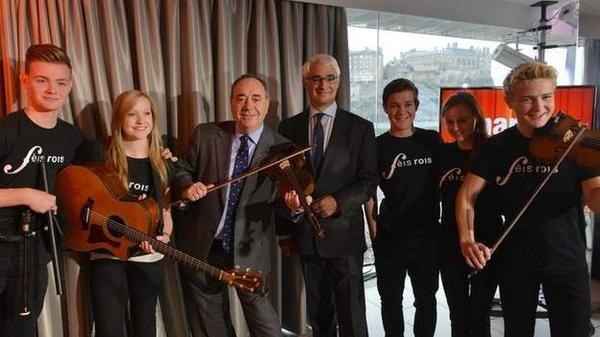
A few weeks before the referendum, Salmond and Darling both appeared on The Andrew Marr Show and a delightful picture of the two adversaries posing with a Scottish fiddle group soon appeared on social media.
"After the interview I joined the band which had played out the programme for a photo," wrote Salmond. "Alistair has to be cajoled by his staff into a very uncomfortable-looking pose."
9. Salmond claimed Angela Merkel refused Cameron's pleas for her to back a No vote.
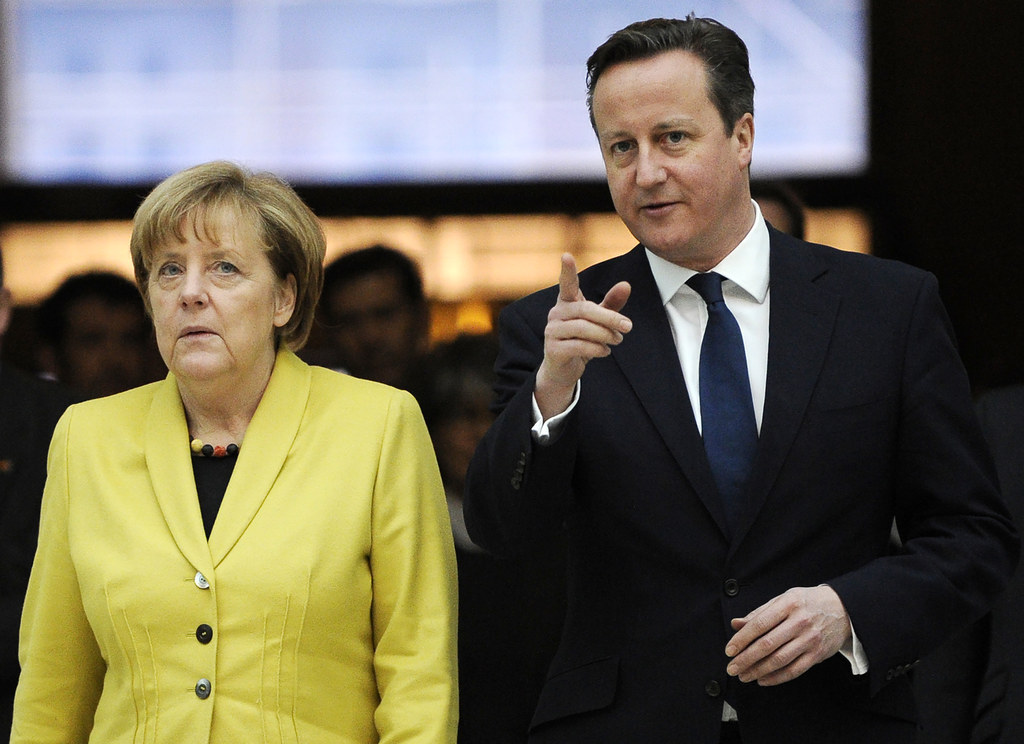
Although Barack Obama and Tony Abbott – the latter of whom Salmond calls "a plonker" – came out against independence, Salmond said that the German chancellor was asked to do so by Cameron but she refused.
"David [MacAllister MEP] tells me he understands Angela Merkel has refused a direct request from Downing Street to intervene on the side of the union preferring to steer the normal neutral course in other country's affairs," wrote Salmond.
"It seems that the German chancellor has more gumption than the American president."
10. Salmond thought the Better Together campaign team were "total duffers".
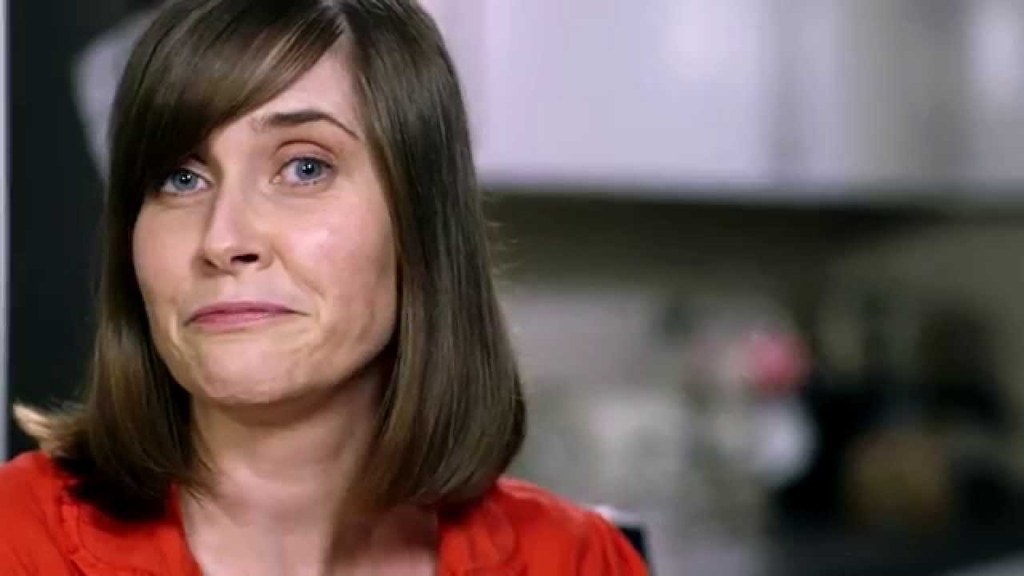
Salmond couldn't hide his delight about how bad he thought the Better Together campaign was doing compared to his Yes campaign.
"Better Together's campaign advert featuring a hapless woman finding politics all a bit complicated is becoming an internet sensation," he wrote with apparent glee, on the advert which came to be known as "Patronising BT Lady".
"Without their faithful prop of an ever-obedient unionist press, this campaign of total duffers would collapse in a heap."
11. Salmond was upset when Yes took a lead in the polls.
#indyref poll in Sunday Times puts Yes vote in the lead! End of Great Britain beckons.
Salmond was on the golf course when his adviser phoned him up to tell him that Yes had pulled ahead in the opinion polls two weeks before the referendum, with the poll predicting 51/49% in favour of Yes.
He initially misunderstood and welcomed the news that Yes had taken the lead, but then he was corrected and told Yes was ahead.
"Damn," he said. "It is a week too soon."
12. He genuinely thought Yes would win and had made arrangements for the victory parade.
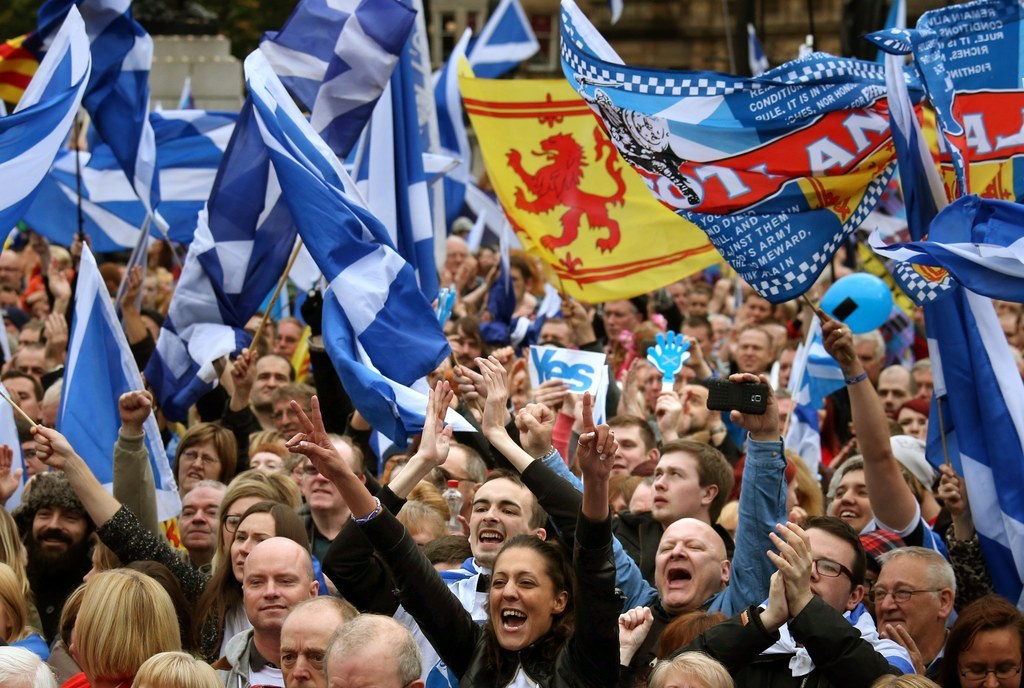
On the day of the referendum, Salmond firmly believed the Yes side would win – to the extent that he had arranged the Yes parties, had prepared the statements, had made "the key appointments", and was ready to begin negotiations with the UK government.
Alas, it didn't come to pass, and Salmond started writing his concession speech as soon as the first result came in.
But, as he says repeatedly in the book, "the dream will never die".
